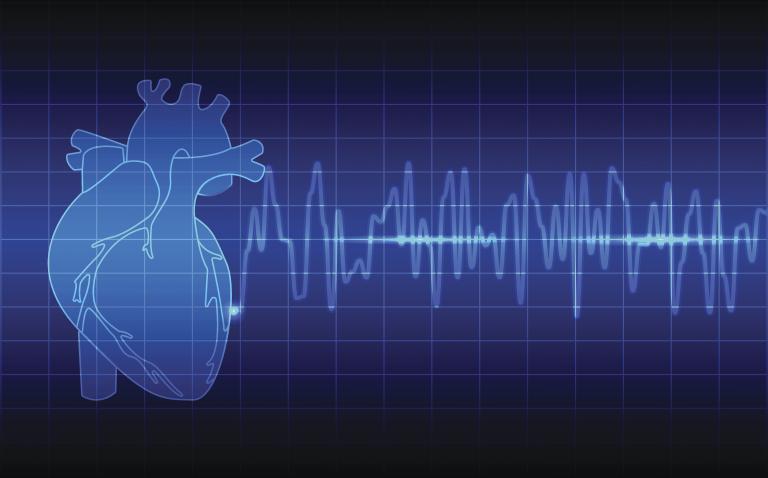KardiaMobile, a revolutionary and potentially life-saving heart monitor, is being distributed to the NHS in England.
The device, about the size of a credit card, detects atrial fibrillation (AF). AF is the most common arrhythmia (irregular heart rhythm disorder) and a contributing factor of up to 1 in 5 strokes in the UK.1 KardiaMobile, developed by AliveCor, is being rolled out as part of an NHS England-funded project, via the country’s Academic Health Science Networks (AHSNs). To date, the AHSNs have supported the uptake and spread of KardiaMobile through the NHS Innovation Accelerator (NIA).
AF affects 1.4 million people in the UK, however it is estimated that almost a further half a million people are undiagnosed and at increased risk from potentially fatal AF-related stroke.2 Patients with AF often remain undiagnosed because their symptoms come and go and may not be present during a consultation with their GP.
This means those with suspected AF are sent to hospital for costly ECGs, and that it may take several visits, and several months or even years before they are diagnosed.
Using a compatible smartphone or tablet device, KardiaMobile is able to record the electrical activity of the heart through a person’s fingertips. The connected app delivers an accurate electrocardiogram (ECG) reading to a device in less than 30 seconds and will indicate whether a person has possible AF.3 The app allows heart rhythm recordings to be viewed, saved and shared with healthcare professionals (HCP) allowing for faster detection and diagnosis of AF.
“Introducing this innovative technology to GP surgeries and hospitals gives healthcare professionals a quick and simple way of recording an ECG without the need to send a patient to hospital. Due to the size of KardiaMobile patients can even take the device away from a consultation. Patients can record their heart’s electrical activity whenever. The device can be used at any time, regardless if they show signs of symptoms or not. This ultimately means AF can be diagnosed faster, anticoagulation therapy can be prescribed to reduce the risk of an AF-related stroke and treatment for AF can be accelerated,” said Trudie Lobban MBE, Founder & CEO at Arrhythmia Alliance & AF Association.
This simple-to-use technology will also offer real cost savings to NHS. By reducing costs needed to achieve an AF diagnosis, KardiaMobile could save the NHS an estimated £2 billion.4 This does not even take into account the longer-term benefits and financial savings of potentially preventing severe and costly AF-related strokes.
The NIA is delivered in partnership with England’s 15 AHSNs. Professor Gary Ford, Stroke Physician and lead on the project for the AHSNs said: “More than 420,000 people throughout England are unaware they have irregular heartbeats and of the dangers that this can pose to their health. We have highly effective treatments that can prevent these strokes, but early detection is key. Using cost-effective technology, the NHS will now be able to identify people with irregular heartbeats quickly and easily. This will save lives.”
“As the NHS approaches its 70th birthday this year, this is also a great reminder of the way that healthcare is continually evolving and innovating. Taking advantage of digital health solutions will be even more important for the next 70 years. Today’s new devices are just one example of the way that low-cost tech has the potential to make a huge difference.”
Francis White, Vice President of AliveCor, commented: “We are delighted to have the opportunity to partner with the NHS. Providing our technology to GPs and hospitals around the UK offers a more efficient solution to AF diagnosis and may ultimately improve patient outcomes.”
References
- Stroke Association. State of the Nation. Stroke Statistics – January 2017. 2017. Available at https://www.stroke.org.uk/resources/state-nation-stroke-statistics. Last accessed February 2018.
- Public Health England. Atrial fibrillation prevalence estimates in England: Application of recent population estimates of AF in Sweden. Published August 2017. Available at https://www.gov.uk/government/uploads/system/uploads/attachment_data/fil… Last accessed February 2018.
- Freedman B et al. White paper: Screening for atrial fibrillation: A report of the AF-SCREEN International Collaboration Download from http://circ.ahajournals.org/. May 2017.
- UCL Partners Academic Health Science Partnership (AHSP). AliveCor’s Kardia mobile ECG: Economic Case. 01/08/2016










